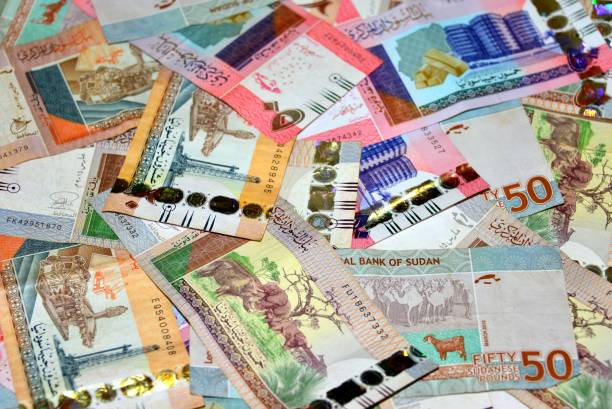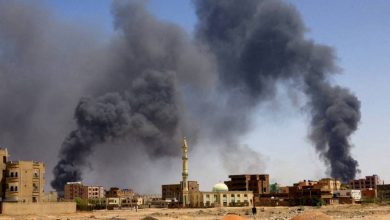Pound Value Deterioration… Economic Cold War

Report – Nahid Oshi
The Sudanese pound is facing a fierce war in face of foreign currencies, leading to a continued deterioration in the value of the pound. The April 15 war has dealt painful blows that have contributed to its reeling and instability. Meanwhile, foreign currencies are witnessing a successive rise.
The collapse of the dollar:
Economic analyst Dr. Awadallah Musa points out that the economic conditions as a result of the ongoing war in Sudan are witnessing clear turmoil.
He said in a statement to Sudan Events that the policy of the Bank of Sudan regarding banks’ purchase of hard currencies directly from the market had brought about success and stability, as the banks were updating their prices according to today’s prices, which forced the parallel market to retreat, but since the outbreak of the war last April 15, these banks have not updated their prices, but rather stopped completely and withdrew from buying directly due to the collapse accompanying the banking sector as a result of the war, and because of the looting to which the banks have been subjected. This directly affected the current price of the dollar, and coincided with the war situation, exports complete stoppage, and the economic movements indicators tilted towards imports only and even here the focus was on as the basic commodities.
Trade imbalance:
He said that due to the expansion of imports and the decrease in exports, there was a clear imbalance in the country’s trade balance. The demand for the dollar also increased, which contributed to the fluctuation of the price of the dollar against the Sudanese pound.
He stated that the war has greatly impacted the course of the economic arena and will affect all the economic aspects in the future. Therefore, the circle of the black market has expanded, and even it has witnessed turbulences as prices vary from one merchant to another and from one city to another, because the market of supply and demand for the dollar is linked to imports, in addition to the fact that all economic data has become unstable as a result of this war.
Awadallah pointed out that solutions need time and requirements, the most important of which is stopping the war and addressing all of its economic repercussions e.g. the structure of the industrial sector, the return of exports, the fluctuation of imports, the return of the banking sector, and all the economic sectors that were impacted by the war.
“Without addressing these issues we will not be able to return to the situation before April 15”.
The economy is now in a complex situation and requires stability in government structures, specialized technical bodies, the banking sector, and the ministries of the economic sector industry and trade.
It is a package of procedures, policies, and measures related to the economic impacts resulting from the war.
Looting and plundering:
The economic expert, Dr. Haitham Mohammed Fathi attributed the decline in the value of the Sudanese pound against foreign currencies to the cases of looting and robbery that took place during the last period, whether from banks or citizens’ homes, and obtaining large amounts of cash and converting them into foreign currencies for smuggling them out, which led to the loss of the Sudanese pound’s purchasing power and the presence of more than 80% in the parallel market since the beginning of the war.
This situation has exacerbated the crisis of hyperinflation inherited since before the war, thus limiting the peoples purchasing power on the one hand and weakened the productive power.
The economic expert, Dr. Mohammed Al-Nayer has meanwhile demanded that the cancellation of the circulation of large denominations in economic activity (1000-500) pounds, and that these denominations should be deposited in Sudanese banks to mitigate the negative impact of the looting of funds.
He said any large transfers which are not involving commercial activity or business, should be traced and the source of the funds be known.



